- Part I: How far have we come?
Date:
- Thursday
July 31st (Early PM)
Organizer:
Panelists:
Part II: How far can we go in the
next 40 years?
Date: - Friday August 1st (Early AM)
Organizer:
Panelists:
Organizer: Prof. Fevzi Belli, University of Paderborn, Germany
Time: Thursday July 31 (Early PM)
In the fall of 1968, NATO hosted in Garmisch-Partenkirchen, close to
Munich, a conference devoted to the problems of the computer industry
that was having a great deal of trouble in producing large and complex
program. The term Software Engineering (SE) was not in general use at
that time, its adoption for the title of this conference was deliberately
provocative. As a result, the conference and its report played a major
role in gaining general acceptance for the term SE. Prof.
Brian Randell (University of Newcastle upon Tyne) was one of
the participants and the co-editor, with Dr. Peter Naur, of the report
of this conference.
Since 1977, building on the trustworthy, secure, and dependable software
are themes of highly successful COMPSAC conferences. Prof.
Stephen Yau (Arizona State University), President of IEEE Computer
Society (1974-75), and Editor-in-Chief for Computer (1981-84), is the
founder of COMPSAC.
In the first part of the special session - 40 Years of Software
Engineering - we will bring together Prof. Randell and Prof. Yau
with Dr.
Jean-Claude Laprie (LAAS-CNRS, Toulouse). Dr. Laprie is one
of the most renowned pioneers contributing to and forming of the research
work on dependable computing. The three scientists will be challenged
to answer questions as:
- What formed SE during the last four decades? What are the landmarks?
- Have we done enough? Do we really have an engineering discipline nowadays?
- Based on the past 40 years of achievements in SE can we develop a collective vision about the next 40 years?
|
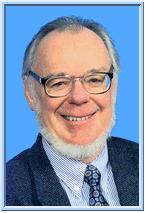 |
|
|
| Prof. Randell's earliest work, during the period 1957-1964 while he was
English Electric, was on compilers. This led to the book: Algol 60 Implementation.
(Co-author L. J. Russell). Academic Press, London, 1964. He then joined
IBM T.J. Watson Research Center, Yorktown Heights, N.Y. where, with an
intervening year during 1965-66 in California, he worked on high performance
computer architectures (the ACS Project), then on operating systems and
system design methodology. During this time, and shortly after he returned
to the UK to become Professor of Computing Science at the University of
Newcastle upon Tyne, he was co-editor of the reports on the two NATO Software
Engineering Conferences.
In 1971 Prof. Randell set up the project that initiated research into the possibility of software fault tolerance, and introduced the "recovery block" concept. Subsequent major developments included the Newcastle Connection, and the prototype distributed Secure System. He has been Principal Investigator on a succession of research projects on system dependability funded by the Science Research Council (now Engineering and Physical Sciences Research Council), the Ministry of Defense, the European Strategic Programme of Research in Information Technology (ESPRIT), and the European Information Society Technologies (IST) Programme. Most recently, he has performed the role of Project Director for CaberNet (the IST Network of Excellence on Distributed Computing Systems Architectures) and for two IST Research Projects, MAFTIA (Malicious- and Accidental-Fault Tolerance for Internet Applications) and DSoS (Dependable Systems of Systems).
Prof. Randell's current computing science research is focused on Dependability and, to a lesser extent, on the History of Computing. He was a founder-member of IFIP WG2.3 (Programming Methodology) and is a founder-member of IFIP WG10.4 (Dependability and Fault Tolerance). In 1979, he helped found MARI (Microelectronics Applications Institute) and in 1993 he was involved in setting up the Northern Informatics Applications Agency, both of which flourished and achieved remarkable results. |
Back to top
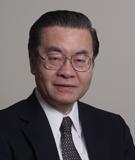 |
| Stephen Yau |
Computing Science & Engineering |
| Professor |
College of Engr & Applied Sciences |
| |
Arizona State University |
|
Box 878809, Tempe, AZ 85287 8809 USA |
|
E-mail: yau@asu.edu |
|
Url: http://dpse.asu.edu/yau/ |
|
|
| Prof. Stephen S. Yau's research contributions in the computer
field began in 1961, spans nearly five decades, and he remains an
active researcher to this day. Prof. Yau's research includes many
problems in software engineering and distributed computing systems,
as well as logic circuit design, and pattern recognition. His early
work includes applied graph theory, universal logic circuits, fault
detection of logic circuits, software maintainability and reliability,
self-checking and fault-tolerant software, and component-based software
development, which have addressed both theoretical and practical
problems in systematic design and development of distributed software
systems. His current research interests are in the areas of cyber
security, service-based systems and ubiquitous computing. In his
recent and ongoing research, such as Reconfigurable Context-Sensitive
Middleware (RCSM), Adaptable Situation-aware Secure Service-based
(AS3) systems, trustworthy data sharing and management in collaborative
pervasive computing environments, and design of service-based systems
with QoS monitoring and adaptation, he has focused on the specifications
and generation of situation-aware secure software in ubiquitous
and service-oriented environments, the development of runtime services
to provide necessary support for monitoring and adaptation of such
software, and various security and privacy issues in data sharing
in collaborative applications.
The Computer Society had formerly recognized his contributions through the prestigious Tsutomu Kanai Award in 2002. Through his work on both the hardware and software aspects of computer systems, Prof. Yau stands out uniquely as a pioneer in the computing field. As the 1974-75 President of the Computer Society, he launched the IEEE Transactions of Software Engineering, reflecting his distant vision to solidify software engineering as an engineering discipline.
For his research and professional services, Professor Yau has received numerous honors and awards in his long career, including the life fellow of the IEEE. Some of his most recent (after 2000) honors are listed below:
- The IEEE Third Millennium Medal (IEEE Computer Society) 2000.
- Tsutomu Kanai Award, The IEEE Computer Society, 2002 (for outstanding contributions to distributed computing software engineering and promotion of the community of distributed computing software researchers.)
|
Back to top
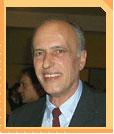 |
|
|
| Jean-Claude Laprie is currently "Directeur de Recherche" of CNRS, the
French National Organization for Scientific Research. He is also Director
of LAAS-CNRS, a 450 people laboratory active in Automatic Control, in
Computer Science and Engineering, and in Microelectronics. He joined
LAAS-CNRS in 1968, and he has directed the research group on Fault Tolerance
and Dependable Computing (1975 - 1996). His research has focused on
dependable computing since 1973, and especially on fault to-lerance
and on dependability evaluation, subjects on which he has authored and
coauthored more than 100 papers, as well as co-authored or edited several
books. He has founded in 1992, and directed until 1996, LIS, the Laboratory
for Dependability Engine-ering, a joint laboratory between Aerospatiale,
Electricite de France, Matra Marconi Space, Technicatome, Thomson-CSF,
and LAAS.
In 1984-1985, he was Chairman of the IEEE Computer Society Technical Committee on Fault-Tolerant Computing, and has been Chairman of IFIP WG 10.4 on Dependable Computing and Fault Tolerance from 1986 to 1995. He is currently chairing the IFIP TC10 on Computer Systems Technology. He received in 1992 the IFIP Silver Core, and in 1993 the Silver Medal of the French Scientific Research. |
Back to top
Organizer:Dr. Cristina Seceleanu, Mälardalen University, Sweden
Time:Friday August 1 (Early AM)
After its birth as a promising discipline, Software Engineering has benefited from a great deal of visionary ideas concretized in advances that have transformed the ad-hoc practice of writing software into a more rigorous activity. Some of these ideas have remained constant, constituting a viable foundation for an engineering discipline: analysis and design methods and notations, software architecture and reuse, security and automated support.
Information security aims at protecting information and software systems
from unauthorized access, use, disclosure, modification, or destruction.
Over the past three decades, Prof.
Virgil Gligor's research on protecting confidential information,
but also on message integrity and authentication protocols, has grown
and evolved the field, significantly.
The extensive and influential work of Prof.
Pankaj Jalote, on software process improvement and assessment
frameworks has advanced an approach to which both practitioners and
researchers can more easily relate. Also, Prof. Jalote is well-known
for investigating how fault tolerance mechanisms can be applied when
engineering a distributed software system.
A great amount of research effort has been recently focused on mathematical
techniques for specifying and verifying complex software systems. Many
of these techniques are already being used on a regular basis in industry.
Success in formal specification can be attributed to notations that
are accessible to system designers and to new methodologies for applying
these notations effectively. Dr.
Rustan Leino is one of the most active proponents and developers
of program checkers built on the technology of program verification.
The session 40 Years of Software Engineering is not only supposed
to review the historic aspects and the milestones of the scientific
and technical achievements that made computer systems more dependable,
but also to propose a vision for the future. Hence, in the second part
of the session, we will continue the visionary discussions by inviting
Prof. Gligor, Prof. Jalote, and Dr. Leino to answer questions as:
- How can we leverage on the SE research achievements accumulated in the last four dec-ades and build a roadmap to the next 40 years?
- Where will the future advances come from?
|
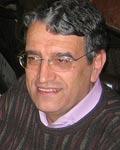 |
| | |||
| Virgil D. Gligor received his B.Sc., M.Sc., and Ph.D. degrees from the University of California at Berkeley. Prior to joining Carnegie Melon, Gligor was at the University of Maryland at College Park, from 1976, and was a Professor of Electrical and Computer Engineering. Over the past three decades, his research interests ranged from access control mechanisms, penetration analysis, and denial-of-service protection to cryptographic protocols and applied cryptography. He was a consultant to Burroughs (1977-1981) and IBM (1984-1999) Corporations, and is currently serving on Microsoft's Trusted Computing Academic Advisory Board (2003-present).
He served the profession as the chair or co-chair of several international conferences and symposia including IEEE Security and Privacy Symposium, Internet Society's Network and Distributed Systems Security Symposium, IEEE Dependable Computing for Critical Applications, and IEEE-ACM Symposium on Reliability in Distributed Software and Databases.
He received the outstanding paper award at the 1988 IEEE Symposium on Security and Privacy (1988) and the best paper award at 13th IEEE International Workshops on Enabling Technologies: Infrastructures for Collaborative Enterprises (2004). He was a member of several US Government INFOSEC Study Groups that set research agendas in information security, and served on a National Research Council panel on information security (1987-1988). He published over one hundred technical articles and was awarded six patents.
Gligor was an Editorial Board member of Information Systems (1984 - 1993), Journal of Computer Security (1991 - 2000), and is currently an Editorial Board member of the ACM Transactions on Information System Security, IEEE Transactions on Dependable and Secure Computing (Editor-in-Chief starting with 2008), IEEE Transactions on Computers and IEEE Transactions on Mobile Computing. In 2005, Gligor was elected chair of ACM's Special Interest Group on Security, Audit and Control, and received the National Information Systems Security Award given by NIST and NSA in the US. |
Back to top
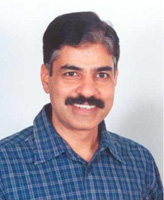 |
|
|
| Pankaj Jalote is currently Microsoft Chair Professor at Dept of Computer Science and Engineering at IIT Delhi. Earlier he was a Professor in Department of Computer Science and Engineering at IIT Kanpur, where he was also the Head of the Department from 1998-2002. He did his B.Tech. from IIT Kanpur, M.S. from Pennsylvania State University, and Ph.D. in Computer Science from University of Illinois at Urbana-Champaign. He was formerly an Assistant Professor in the Department of Computer Science at the University of Maryland, College Park. From 1996 to 1998, he was Vice President (quality) at Infosys Technologies Ltd., a large Bangalore-based company providing software solutions worldwide, and from 2003 to 2004 was a Visiting Researcher at Microsoft Corporation, Redmond, USA.
Dr. Jalote is the author of the highly acclaimed book CMM in Practice (Addison Wesley) which has been translated in many languages including Chinese and Japanese, and the very popular text book An Integrated Approach to Software Engineering (Springer), whose Indian Edition was declared as the best selling Computer Science book by its local publisher (Narosa). He has published two other books - Software Project Management in Practice (Addison Wesley) and Fault Tolerance in Distributed Systems, (Prentice Hall).
He has also authored many papers in International Journals and conferences. His area of interest is Software Engineering and Distributed Computing. He is on the editorial board of IEEE Transactions on Software Engineering and International Journal of Empirical Software Engineering. He is a Fellow of the IEEE. |
Back to top
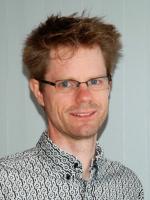 |
| | |||
| Rustan Leino is a Principal Researcher in the Programming Languages and Methods group at Microsoft Research, Redmond, where his research centers around programming tools. He currently leads the Spec# project, which explores enforceable contracts in object-oriented programming. He works on the design and implementation of the Spec# programming language as well as its static program verifier, called Boogie. He is also involved in a new project to verify C code, which reuses the Boogie tool.
Before joining Microsoft Research, Leino worked as a researcher
at DEC/Compaq SRC, where among other things he led the Extended
Static Checking for Java (ESC/Java) project, a light-weight program
checker built on the technology of program verification. His PhD
thesis from Caltech (1995) addressed an important specification
problem in ESC/Modula-3. Before going to graduate school, Leino
worked as a software developer and technical lead in Windows/NT
at Microsoft. He has written code that shipped in releases of
Windows 3.0, Windows 3.1, and Windows/NT 3.5 .
|
Back to top
|